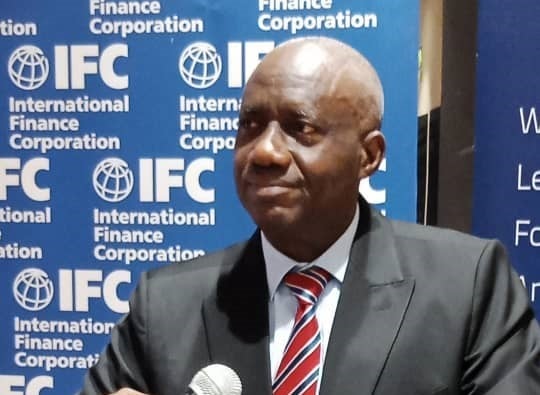Ken Aghoghovbia, deputy managing director (DMD) of the African Reinsurance Corporation (Africa Re), says the non-renewal of the federal government’s anchor borrowers programme (ABP) is responsible for the poor performance of the agriculture insurance sector.
Agriculture insurance is a critical risk management tool to help farmers avoid financial losses and keep their businesses running.
Aghoghovbia spoke at the company’s agriculture insurance workshop held for stakeholders earlier in the week.
The ABP was launched by ex-President Muhammadu Buhari on November 17, 2015, to create a linkage between anchor companies involved in the processing and smallholder farmers (SHFs) of the required key agricultural commodities.
Advertisement
As at March 2023, a total of N1.09 trillion was said to have been disbursed through the scheme since inception, according to Godwin Emefiele, the erstwhile governor of the Central Bank of Nigeria (CBN).
Also, a total of 4.6 million smallholder farmers cultivating or rearing 21 agricultural commodities were said to have benefitted from the programme.
Despite the seeming success of the ABP, the federal government reportedly stopped the initiative, leading to the withdrawal of its support to farmers in the country.
Advertisement
The scheme’s abrupt end has been linked to the inability of beneficiaries to repay the loan on maturity, thereby holding up government funds and denying others from accessing the same benefits.
Speaking on the issue at the workshop, Aghoghovbia, who doubles as the chief operating officer of Africa Re, said agriculture insurance has a huge potential to raise the earnings of Nigeria.
He said in the second quarter (Q2) of 2023, agriculture accounted for about 21 percent of Nigeria’s GDP, noting that the sector “employs more than 36% of the country’s labour force, with over 70% of this proportion being smallholder farmers”.
The deputy managing director said with approximately 70 million hectares of agricultural land and a diversity of agriculture enterprises, Nigeria’s agriculture insurance market “has the potential to generate a premium of over USD 600 million”.
Advertisement
“However, the current market reality paints a different picture. While gross market agriculture insurance premium grew to a peak of USD 15 million in 2021, this figure has declined significantly,” Aghoghovbia said.
“This dismal performance is attributed to several factors that include, non-renewal of the Government supported Anchor Borrowers Program, the misalignment of business goals between various industry players and the lack of investment needed to help industry players design and develop agriculture insurance products that respond to the needs of farmers and realities of Nigeria’s Agriculture landscape.”
In general, Aghoghovbia said the agricultural sector has been hurt by several shocks such as flooding, desertification of crop and land grazing, conflicts between herdsmen and local farmers, inadequate access to financing and low use of modern technology.
These challenges, he said, have stifled the sector’s productivity, and created a huge gap between local food supply and demand leading to increased food imports.
Advertisement
“The International Trade Administration estimates that Nigeria relies on about $10 billion of imports to meet its food and agricultural production shortfalls,” the Africa Re boss said.
“Agriculture Insurance, you would agree, holds great promise in turning around the fortunes of Nigeria’s agriculture sector.”
Advertisement
AGRICULTURE INSURANCE CAN BOOST FOOD SECURITY
On his part, Mohammad Aliyu, the country officer for Nigeria at the International Finance Corporation (IFC), said agriculture insurance plays a crucial role in bolstering food security by enhancing the resilience of agricultural SMEs.
Advertisement
He said integrating insurance into “agri finance channels” also facilitates farmers’ access to the necessary financing needed to expand their production, and enables banks to manage the inherent risks in agricultural lending.
“Through our participation at this workshop, IFC aims to glean valuable insights to effectively collaborate with stakeholders to ensure the sustainable expansion of the agriculture insurance market in Nigeria,” Aliyu said.
Advertisement
“We encourage all attendees present to actively participate in the enriching discussions that will happen at this two-day workshop, share their expertise, and cultivate valuable networks. Such collective endeavors underscore the significance of collaboration in achieving the objectives of this workshop.”
“This workshop represents a significant stride toward the advancement of the agricultural insurance landscape in Nigeria and the broader West Africa region.”







